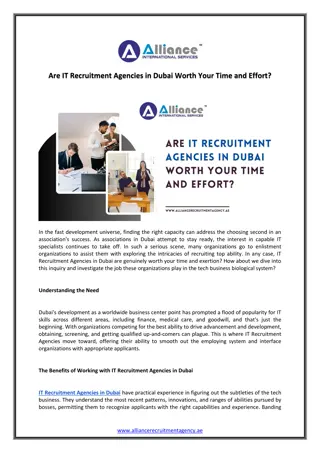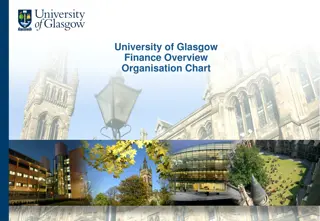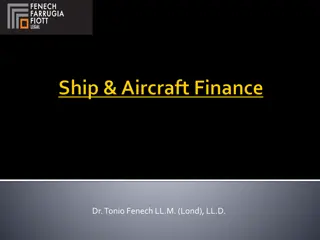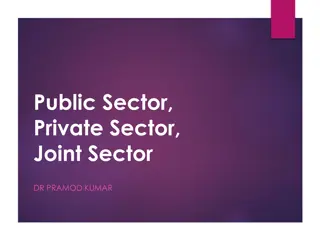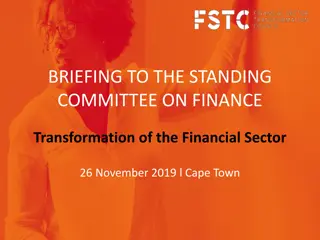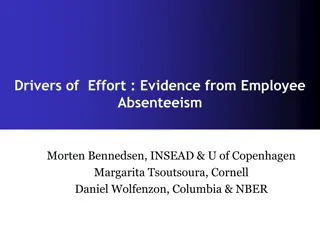Sector Finance Strategies: Worth the Effort?
Explore the development of finance strategies in the WASH sector through insights and key elements discussed in a recent session. From understanding the importance of strategic documents to capturing more funding flows, the session highlighted critical considerations for financial sustainability. Discover the benefits of integrating climate resilience and navigating fiscal limitations to enhance financial discussions within the sector.
Download Presentation

Please find below an Image/Link to download the presentation.
The content on the website is provided AS IS for your information and personal use only. It may not be sold, licensed, or shared on other websites without obtaining consent from the author.If you encounter any issues during the download, it is possible that the publisher has removed the file from their server.
You are allowed to download the files provided on this website for personal or commercial use, subject to the condition that they are used lawfully. All files are the property of their respective owners.
The content on the website is provided AS IS for your information and personal use only. It may not be sold, licensed, or shared on other websites without obtaining consent from the author.
E N D
Presentation Transcript
CONNECT Finance Session 7 Bringing it together: Sector Finance Strategies, is it worth the effort?
Intro, opening, moderation and closing Stef Smits Co-Director Growth Hub IRC Angela Huston Head of strategy and adaptation IRC B nigne Ishimwe WASH Governance expert IRC Catarina Fonseca IRC Associate Pulsing Tide Director
Dr. Catarina Fonseca, IRC Associate The development of finance strategies Insights from supporting finance strategies processes
Outline 1. 2. Key elements of a finance strategy 3. Insights from a set of strategies (content and process) What is a finance strategy
What is a finance strategy A strategic document, developed under government leadership in consultation with relevant stakeholders, that aims to ensure the financial sustainability of the WASH sector. The process of developing a WASH finance strategy promotes policy dialogue and facilitates consensus building, based on a strong analytical base.
Insights from a set of strategies content (1/2) 1. Process of developing finance strategies captures more funding flows to the sector than existing studies 2. Options that provide (and unlock) most funds are 1)reducing non revenue water and increasing billing followed by 2) tariff reforms and 3) optimising public finance (more for project preparation, utility reforms, capacity local governments, etc.). 3. Narrow approach. WASH only. Rarely include wastewater, water resources protection, flood protection, solid waste. But do include WASH in health and WASH in education.
Insights from a set of strategies content (2/2) 4. Integrating climate resilience into programme implementation adds significant cost, but also open up new sources of finance 5. Critical to understand the fiscal space of the country and limitations of public financial management systems at local government level 6. Bring to the financial discussion national public development banks which have not been part of finance consultations/discussions in the sector
Insights from a set of strategies - process 1. Can be done within 6 - 12 months. 2. Depends on existing data (WASH Accounts, SDG6 costing, finance gap calculations, finance plans). Each country has only some of these. 3. No need to spend time to get the exact finance gap. We know its there and its big. Focus on the understanding the 3Ts and the strategies to increase them. 4. Consultations are easier when all Ministries are involved but formal approvals take time 5. Unclarity on who is the leading agency/institution when complex issues require multisectoral approaches (ie. climate funding, water security, food security) 6. Finance strategies need to remain a live document. Unclear how they are part of ongoing sector coordination and review processes moving forward.
All Systems Connect 2023 is made possible thanks to the generous support of our partners including the World Health Organization and :
Panel 1: National WASH Finance Strategies: countries experiences H.E. Mr. Roberto Carlos Ramirez Alvarenga Vice Minister of Finance Honduras H.E. Semereta Sewasew State Minister Finance Ethiopia Max John Wengawenga Deputy Director Policy and Planning Ministry of Water and Sanitation Malawi Moses Ssonko Senior Economist Ministry of Finance Uganda
Panel 2: National WASH Finance Strategies: perspectives Delia Sanchez Joel Kolker Global Lead Water and Finance World Bank Group Environmental Economist Organisation for Economic Co-operation and Development R mi Kaupp Executive Director Container Based Sanitation Alliance Janet Atim Principal Water and Sanitation Engineer African Development Bank Ghana









